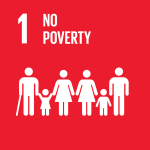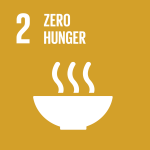11 March 2020 – In its March Board meeting, the Green Climate Fund (GCF) approved a new US$26.6 million grant for a project to build climate resilience for vulnerable smallholder farmers in Southern Zimbabwe. Through revitalization of 21 irrigation schemes, enhancing water and soil moisture management and water use efficiency, promoting climate-resilient agriculture, improving access to climate information and markets, and building partnerships with public and private sector actors, the project will benefit 2.3 million rural smallholder farmers, mostly women in the vulnerable provinces of Manicaland, Masvingo and Matabeleland South.
The seven-year project will be implemented by Zimbabwe’s Ministry of Lands, Agriculture, Water and Rural Resettlement with support from the United Nations Development Programme (UNDP) in coordination with the Climate Change Management Department (CCMD). The GCF grant is being matched with US$20 million in co-finance from the Government of Zimbabwe and US$1.2 million from UNDP.
The project comes as a vital intervention to build smallholder farmers’ resilience to shocks and stressors created by the climate crisis. Extreme events have historically affected Zimbabwe adversely, predominantly in the form of droughts, mid-season dry spells, floods and tropical storms (cyclones). The project is approved at a time when Zimbabwe is going through a devastating drought that has left 7.7 million people food insecure.
Climate change is impacting social and economic development in Zimbabwe. Spiking temperatures, high variability in rainfall, and intensifying extreme weather events are hampering economic growth and putting vulnerable farmers at risk.
According to the World Food Programme (WFP), “Zimbabwe’s hunger crisis - the worst for more than a decade - is part of an unprecedented climate-driven disaster gripping southern Africa. Temperatures in the region are rising at more than twice the average global rate and ever more erratic rainy seasons are hitting the country’s subsistence farmers hard.” The World Bank estimates that extreme poverty rose from 4.7 million to 5.7 million people from 2018 to 2019, with more than a third of the population living in extreme poverty.
“By giving farmers the tools, training and information they need to adapt farming practices and build resilience in face of the climate crisis, we are investing in: the economic and social future of our country; better early warning systems; ending poverty and hunger, and keeping temperature rises below 2 degrees Celsius as outlined in the Paris Agreement on Climate Change,” said Mr Washington Zhakata, the Director for Climate Change Management Department and Zimbabwe’s Green Climate Fund Focal Point.
This project focuses on scaling up climate resilient agricultural production, diversification and access to climate information and services to help smallholder farmers increase productivity, access markets and build climate-resilient livelihoods that will improve the overall productivity of the agricultural sector. At the national level, the project will accelerate action under the National Climate Change Response Strategy and help reach the country’s Nationally Determined Contribution to the Paris Agreement on climate change
The project will reach some of Zimbabwe’s most marginalized people. Innovation Platforms will be created to ensure increased capacity on the ground, and a shift towards market-oriented, climate resilient agricultural livelihoods.
“This project is a key component of UNDP’s effort to build resilience of vulnerable communities in Zimbabwe and to accelerating the broader objectives of the Climate Promise. It also lives up to our promise to facilitate climate change adaptation of the most vulnerable and demonstrates concrete steps to leave no one behind in this #DecadeOfAction,” said UNDP Resident Representative to Zimbabwe, Georges van Montfort.
UNDP will continue to support resource mobilisation efforts from the Green Climate Fund by the GCF National Designated Authority – the Climate Change Management Department in the Ministry of Environment, Climate, Tourism and Hospitality Industry – aimed at realizing the National Climate Policy Vision of a Low Carbon and Climate Resilient Zimbabwe.
Notes to editors
- UNDP Zimbabwe
- UNDP Project Page: Building Climate Resilience of Vulnerable Agricultural Livelihoods in Southern Zimbabwe
- GCF Zimbabwe
- UNDP Human Development Report Zimbabwe
About UNDP
UNDP partners with people at all levels of society to help build nations that can withstand crisis, and drive and sustain the kind of growth that improves the quality of life for everyone. On the ground in nearly 170 countries and territories, we offer global perspective and local insight to help empower lives and build resilient nations. www.undp.org.
About GCF
The Green Climate Fund (GCF), the world’s largest fund dedicated to climate finance, supports developing countries to reduce their carbon emissions and strengthen their resilience to climate change. Set up by the United Nations Framework Convention on Climate Change (UNFCCC) in 2010, GCF is an operating entity of the UNFCCC’s Financial Mechanism that also serves the Paris Agreement. GCF drives climate finance to where it is needed most: in the Least Developed Countries, Small Island Developing States, and African States.



